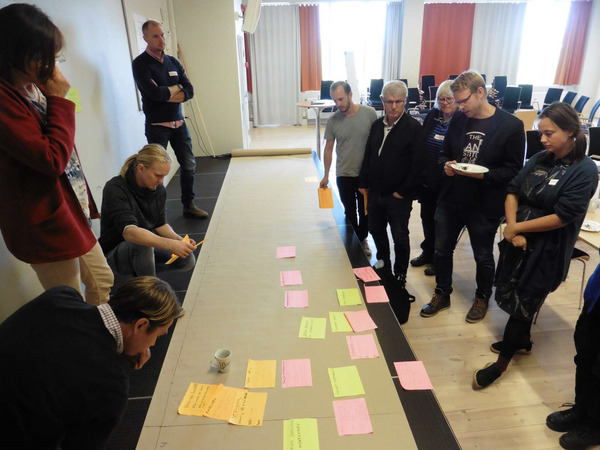Part of the DiverIMPACTS project aims to identify lock-ins and work with the DiverIMPACTS case studies to determine the best way to address barriers to diversification at the farm, value chain, contracts and consumer level.
We will work with the case studies to consider the advancements, constraints and opportunities of each case study and provide recommendations that will fit in their action plans. While this work is only just beginning, here are a few examples of what is to come:
Case study 11 (Co-design of diversified systems in Pays de Loire, France):
In order to get a first broad overview of how farmers can overcome barriers to diversification with protein crops, we have started to interview a set of farmers who have already implemented crop diversification on their farms. Farmers will be interviewed this winter, in order to analyse the resources they mobilised during their innovation process, from technical knowledge to labour organisation and marketing channels.
Case study 15 (Growing pulses and innovative crops for a less resource intensive diet, UK):
In this case study, Hodmedod’s, a small business selling products made with legumes and other minor crops, raised the issue of small-scale decortication of buckwheat. This process, which can extend the range of possible processing operations and the product’s shelf life, appears to be tricky and technically difficult with small-scale equipment, resulting in much loss. To address this issue, the DiverIMPACTS project is organising a field trip (probably in December 2019) with British partners to France in order to visit farmers, who have been decorticating buckwheat for many years on a small-scale, so that they can benefit from their experience.
Case study 17 (Grain legume intercropping with cereals, Belgium):
The aim of the collaboration with case study 17 is to build a framework contract that can remove coordination constraints, reduce uncertainty and value diversification in the relationship between farmers growing pea-wheat intercrops and their trading partners. To build this contract, two surveys will be carried out in a first stage to understand barriers/opportunities for farmers on one side and for trading partners on the other side. The creation of these precise surveys, focused on pea-wheat intercrops, will be inspired by the previous survey developed in DiverIMPACTS, experience of INRA economists, AgroSolutions partners (working with cooperatives in France), and Walagri, the Belgian trader, which is the central actor in case study 17. These surveys are under development and will be carried out this winter. The information provided will be considered to design contracts, which will support diversification through intercropping.
Case study 19 (Co-design with farmers of intercropping systems for food or feed, Sweden):
During a workshop organised by case study members in Sweden (see photo), discussions with actors allowed us to set up the practical objectives. In 2019, a student will be (co)-supervised by UCL to make a precise diagnosis of organic legume value chains and logistics in Sweden. Perspectives of logistic improvements and implications of an increased demand on volumes, farmers and acreages will be analysed. This study will provide substantial and precise data, which will feed the reflective interactive design process, in which the case study is involved.

 tap and then scroll down to the Add to Home Screen command.
tap and then scroll down to the Add to Home Screen command.